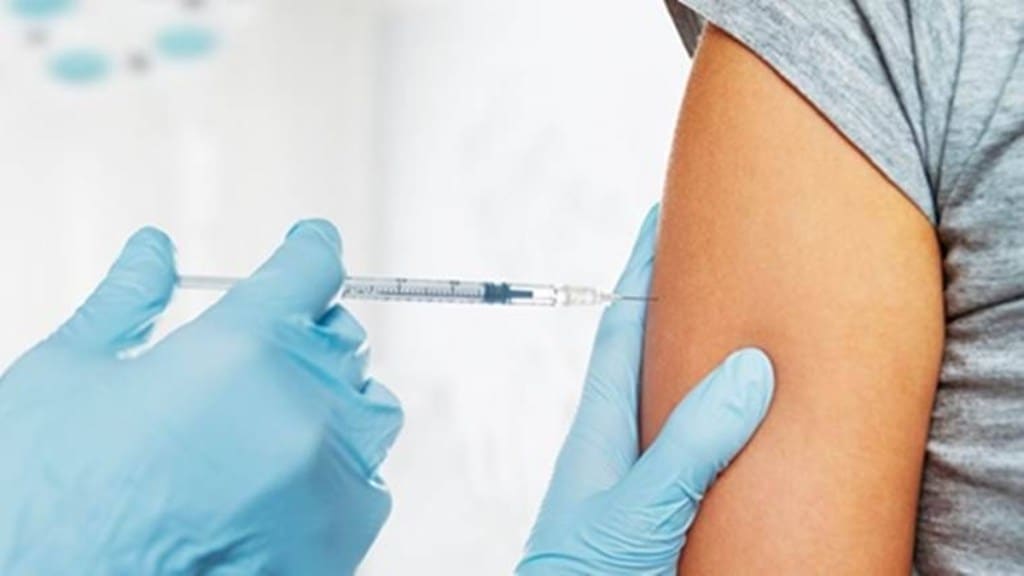By Rajib Dasgupta
The goal of World Immunization Week is for more children, adults – and their communities – to be protected from vaccine-preventable diseases, allowing them to live happier, healthier lives. The World Immunization Week 2023 (24 to 30 April) is not much of a cheer globally in the backdrop of large scale immunization backslide and decline in vaccine confidence. The theme this year is “The Big Catch-Up,” to accelerate rapid progress in countries to get back on track to ensure more people, particularly children, are protected from vaccine preventable diseases.
Vaccine Preventable Diseases (VPDs) are conditions caused by bacteria and viruses that can be prevented by vaccines and can cause long-term illness, hospitalization, and even death. The WHO’s list of ‘available vaccines’ is a list of 25 diseases for which vaccines are available and ‘pipeline vaccines’ is a list of 15 pathogens for which vaccines and/ or monoclonal antibodies (mAbs) are in development.
The global backslide
The UNICEF’s State of the World’s Children (SOWC) Report 2023 released on 20 April highlighted a deep-seated crisis: “The world is facing a red alert for children’s health.” The pandemic linked backslide set back vaccination rates to levels of 2008, wiping out more than a decade’s sustained improvements in immunization coverage levels. An estimated 67 million children missed their routine immunization, entirely or partially, between 2019 and 2021 including 48 million not receiving any vaccine.
To add to the worries, recently released results from the Vaccine Confidence Project, drawing upon 159 nationally representative surveys across 55 countries, reported loss of confidence in all but three countries. Some of the largest loss in vaccine confidence are among the Eastern European countries and the Baltic states in Europe and the Democratic Republic of Congo, Ghana, and Senegal in Africa.
Unpacking the India story
India’s handling of the immunization program during the pandemic is a story of sustained political commitment and building vaccine confidence through equitable vaccine delivery. Significantly, India (along with China and Mexico) is among the three countries with the highest vaccine confidence in the world, with all other countries registering a decline. India was able to halt the immunization backslide of 2020 despite the severe Delta-related disruptions in 2021, and the situation didn’t worsen.
Immunization was declared an essential component of health services early in the pandemic (15 April 2020). Detailed guidelines on safe vaccination during pandemic restrictions; modifications of micro-plans to identify immunization sites beyond COVID-19 restricted areas; logistics to prevent COVID-19 transmission at session sites; and, regular review meetings at district, state, and national levels were conducted.
The Intensive Mission Indradhanush (IMI) 3.0 was conducted by the national program in 250 high risk districts during February-March 2021 and coverage improvement plans instituted in 192 medium risk districts. The IMI 4.0 round was conducted in three phases in 416 districts during February-April2022 to consolidate the gains. Several states organized additional catch-up campaigns: Assam conducted Mission Ramdhanu in July 2020 and Rajasthan and Uttar Pradesh conducted campaigns during September-October 2020 and in November 2020 -January 2021 respectively.
Strong fundamentals
There have been two recent markers of success. India’s development and indigenous production of COVID-19 vaccines gave it a head start. Subsequently, the Department of Biotechnology delivered four vaccines and augmented the manufacturing of Covaxin through “Mission COVID Suraksha.” The four vaccines are- ZyCoV-D- a DNA Vaccine, CORBEVAXTM-India’s first protein subunit vaccine, GEMCOVAC™-19 – an indigenously developed mRNA vaccine and iNCOVACC- an intranasal COVID-19 Vaccine. India was able to immunize upwards of 97 per cent of eligible beneficiaries with at least one dose of COVID-19 vaccine and more than 90 per cent of eligible beneficiaries with both doses.
The COVID-19 vaccination program built on the sustained inputs and success of the routine immunization program. Following the launch of the Expanded Program on Immunization in 1978, it has grown to immunizing 2.67 crore newborns and 2.9 crore pregnant women annually with the help of about 30,000 cold chain points. The program provides vaccines against nine diseases nationally: Diphtheria, Pertussis, Tetanus, Polio, Measles, Rubella, severe form of Childhood Tuberculosis, Hepatitis B and Meningitis & Pneumonia caused by Hemophilus Influenza type B. Vaccine against three diseases are provided sub-nationally: Rotavirus diarrhea, Pneumococcal Pneumonia and Japanese Encephalitis.
It is well known that Indian manufacturers supply about 60% of the vaccine requirements of the UNICEF. However, India could not sustain high levels of vaccine exports during the COVID period; the share in the total volume of vaccine exports decreased to 3.68% in the first year of COVID from 11.01% in the pre-COVID decade but increased to 6.18% in the second year of COVID. A CAGR of 13.4% during 2022-2027 has been projected for India’s vaccine market.
The G20 opportunity
Under the G20 Presidency, India is today able to model commitment and success in providing access to life-saving vaccines for the most vulnerable children, in the remotest areas. Developing blueprint for Vaccine Therapeutics and Diagnostics (VTDs) is a key priority area. The India story offers important case studies both for G20 members as well as many in the global south.
Rajib Dasgupta is Professor at the Centre of Social Medicine & Community Health, Jawaharlal Nehru University, New Delhi and Editor, Indian Journal of Public Health
Disclaimer: Views expressed are personal and do not reflect the official position or policy of Financial Express Online. Reproducing this content without permission is prohibited.








